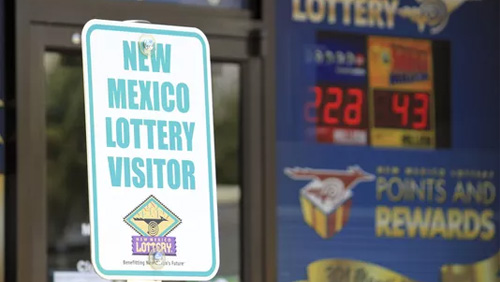The board of the New Mexico Lottery Authority (NMLA) has approved the offering of a game connected to outcomes of sporting events.
 While not all details of the game’s rules are sorted out, it involves the selecting of at least three sporting events and choosing their outcomes correctly to win, the Santa Fe New Mexican reported. A maximum of 25 outcomes could be selected, and payments to winners will amount to at most 58% of total money wagered.
While not all details of the game’s rules are sorted out, it involves the selecting of at least three sporting events and choosing their outcomes correctly to win, the Santa Fe New Mexican reported. A maximum of 25 outcomes could be selected, and payments to winners will amount to at most 58% of total money wagered.
NMLA CEO David Barden described the game by saying, “It’s not your grandmother’s lottery game,” adding that it was intended to appeal to younger generations. He estimated the sports game to bring in $30 million annually, wherein $9 million of this will go to a tuition-assistance program for college students.
The Santa Fe New Mexican article cited a study that saw sports betting in the state becoming a $1.2 billion-$1.45 billion business annually.
Greece-based Intralot, which already operates several numbers games in the state, will operate the sports game as well. Its CEO Antonios Kerastaris said that the NMLA has become the first lottery in the country with a sports-based game available at all its retail outlets. While Delaware also has a lottery sports game, he noted, this is offered only in limited areas.
Kerastaris said he expected the game to attract new lottery players. According to him, “What we’re offering here is a more engaging lottery game.”
Dan Salzwedel, lottery board chairman, said the new game was “a great step forward for the lottery.”
The game is the latest among those offered in the state taking advantage of the repeal last May of the federal ban on sports betting. Last month, the Santa Ana Pueblo tribe became the first one to offer sports wagering, at its Santa Ana Star Casino & Hotel. Currently, betting is limited to just the casino, and not yet online or for mobile devices.
Stop Predatory Gambling New Mexico Chairman Guy Clark said that the lottery board’s latest move was insufficient to allow for the sports game. He explained that the NMLA received a share of tribal casinos’ revenue while agreeing to limit the games it offers.